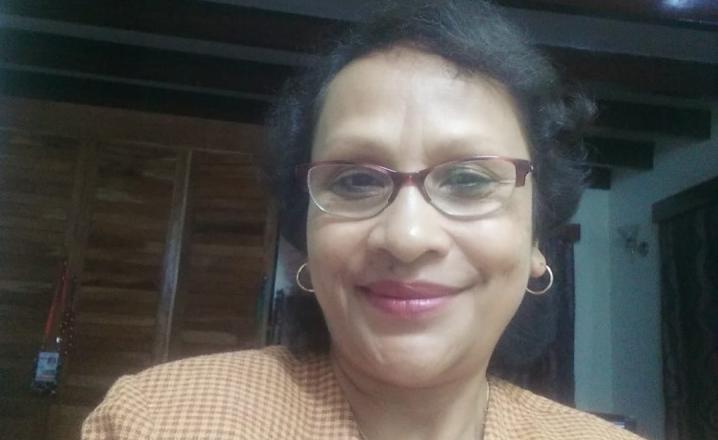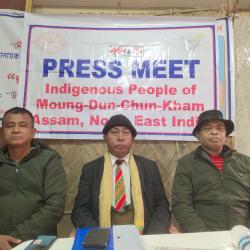PEN Delhi expresses its deep concern at the intimidation that Patricia Mukhim, editor of The Shillong Times, is being subjected to for her opposition to the violence against non-tribals in Meghalaya. A complaint has been filed by Lawsohtun Dorbar Shnong, the traditional local body, with the Shillong police, against Mukhim, charging her with defaming the Khasi community and creating communal enmity between communities.
The complaint claims that the case against her is made out under sections 153A, 505 and 499 of the Indian Penal Code. The demand to initiate criminal proceedings against Patricia Mukhim was made after she wrote a post on her Facebook page about an attack on a group of young non-tribal youth by a gang of masked youth, allegedly tribals. Mukhim wrote:
“Conrad Sangma CM Meghalaya, what happened yesterday at Lawsohtun where some non-tribal youth playing Basketball were assaulted with lethal weapons and are now in hospital, is unacceptable in a state with a Government and a functional police force. The attackers, allegedly tribal boys with masks on should be immediately booked. This, continued attacks on non-tribals in Meghalaya whose ancestors have lived here for decades, some having come here since the British period, is reprehensible to say the least. The fact that such attackers and trouble mongers since 1979 have never been arrested, and if arrested never penalised according to law, suggests that Meghalaya has been a failed state for a long time now.”
Mukhim also asked the local village council known as Dorbar Shnong of Lawsohtun why it was unable to sense the violence brewing in the community, “ …what about the Dorbar Shnong of the area? Don’t they have their eyes and ears to the ground? Don’t they know the criminal elements in their jurisdiction? Should they not lead the charge and identify those murderous elements? This is the time to rise above community interests, caste and creed and call out for justice.”
What should be regarded as a sane and humane response was, however, criminalised. Mukhim asks: “Why should our non-tribal brethren continue to live in perpetual fear in their own state? Those born and brought up here have as much right to call Meghalaya their state as the indigenous tribal does.” According to the Dorbar Shnong, criminal proceedings should be initiated against her because: “This statement incites communal tensioning, may instigate a communal conflict which may spread to the entire state thereby… putting all Khasis outside the state in extreme danger.”
The complaint also alleges that: “Miss Mukhim has defamed not only the Dorbar Shnong of Lawsohtun but also the entire village without any basis and… has put the entire village in a very bad light before the entire world.”
Patricia Mukhim has done what any conscientious citizen / person would do. She brought to the notice of the constitutional functionaries an act of crime, which her long experience as a journalist tells her is part of a pattern of a sectarian and communal violence against the non-tribal minorities. She has consistently written about the dangers of majoritarian violence and has reminded her people about the violence of 1979 and later in 1984, 1987, and 1992.
Mukhim has previously suffered for having spoken out about the hatred and violence against the non-tribal people by groups promoting sub-nationalistic fervour. At the time, her house was petrol-bombed.
PEN Delhi urges the Shillong police and the Chief Minister of Meghalaya to take note of the genuine concern of Patrica Mukhim and investigate the violence against the non-tribals. It also appeals to the Dorbar Shnong to appreciate the concern behind Mukhim’s questioning and work towards the elimination of hatred against so-called outsiders.
PEN Delhi stands in solidarity with the courageous humanist writer and journalist Patrica Mukhim.
- 8382 reads










Add new comment